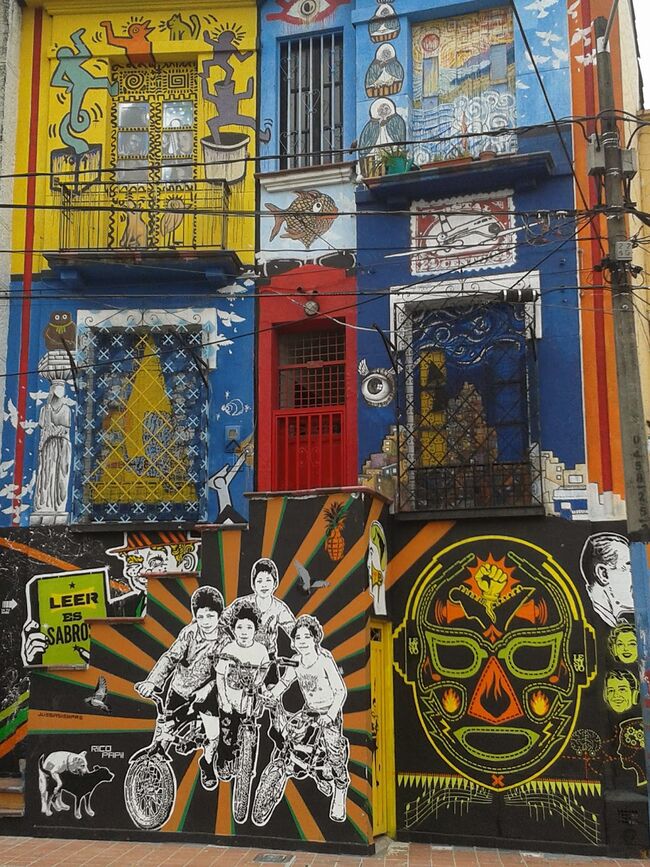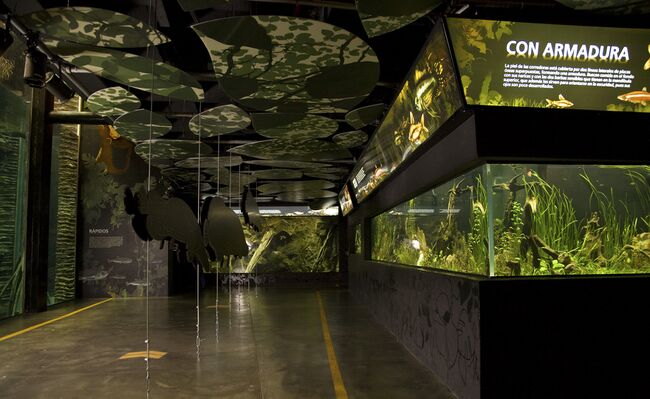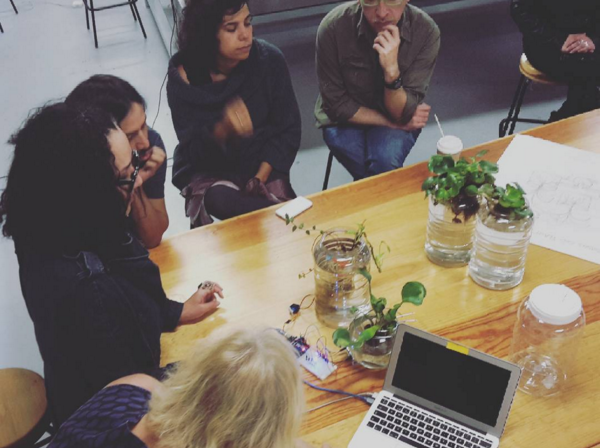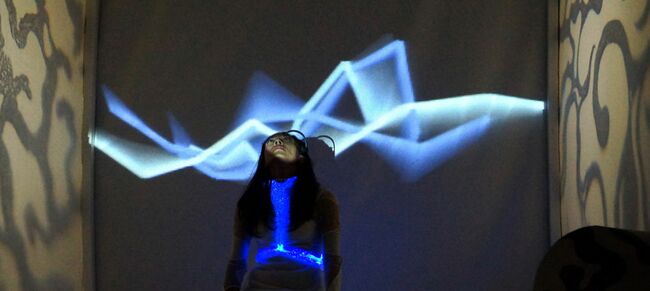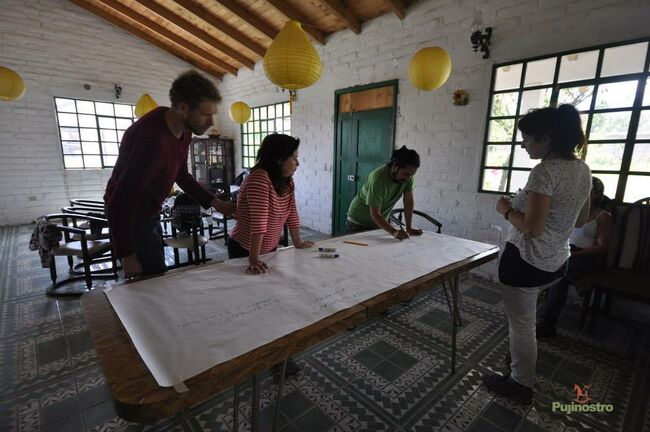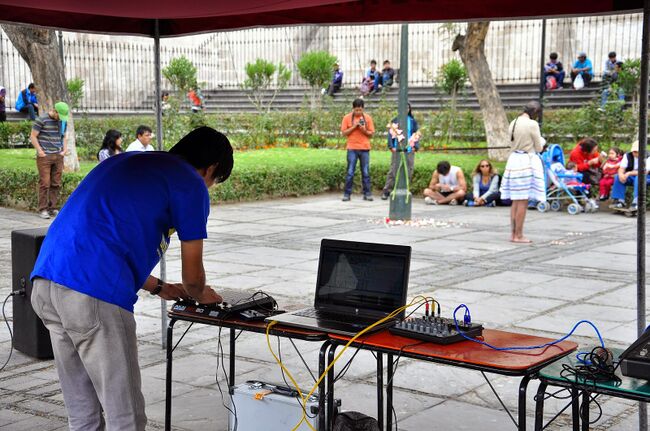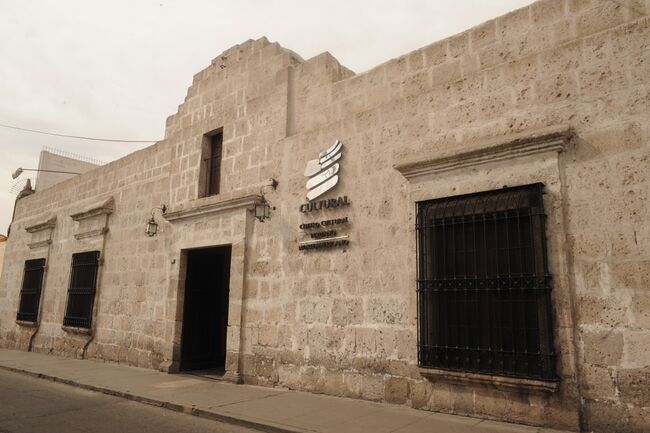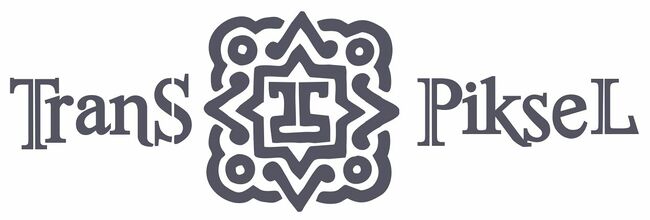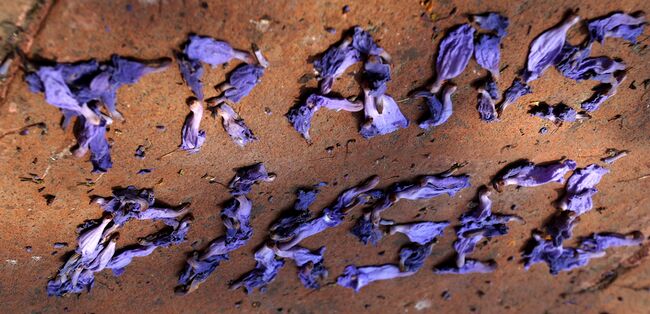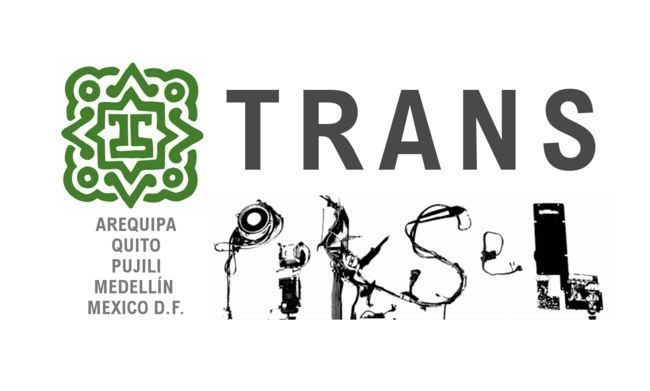TransPiksel 2021
TransPiksel
Four days of workshops, exhibitions, audiovisual concerts and a BioARt Lab with international and local artists working on art and technology with a special focus on bioart, enviromental sciences and DIY electronics to be held in Arequipa (Perú), Quito & Pujili (Ecuador) , Mexico D.F. (MX) and Medellín (Colombia).
August - September 2015
Keywords
sound art, sound installation, video research, interactive video, video performance, interactive installation, stand alone video loop (pikselsavers), textile gadgets, DIY BioHacking, visual programming and live coding.
Partners
Colombia Museum of Modern Art – Jorge Barco, http://www.elmamm.org/
Platohedro - Juan Jaramillo, http://platohedro.org/
Colaboratorio, Parque Explora - Camilo Cantor http://www.parqueexplora.org/colaboratorio
Mexico Autonomous University of Mexico - Maria Antonia González, http://www.artemasciencia.com/
Bioscénica - Minerva Hernández, http://bioscenica.mx/
Ecuador CAC, Centro de Arte Contemporáneo - José Luis Jácome y Tania Navarrete, http://www.centrodeartecontemporaneo.gob.ec/
Pujinostro - José Luis Jácome y Tania Navarrete, https://residenciadeartistaspujinostro.wordpress.com/
Perú Asimtria - Marco Valdivia, http://asimtria.org/ Centro Cultural Peruano Norteamericano, http://www.cultural.edu.pe/
Project Description
Piksel is organizing with its partners TransPiksel, a South American tour comprising 4 countries: Mexico, Perú, Colombia and Ecuador. Our partners are museums, artist-run organisations and other non-profit cultural institutions.
Four days of workshops, exhibitions, audiovisual concerts and a BioARt Lab with international and local artists working on art and technology with a special focus on bioart, enviromental sciences and DIY electronics.
Piksel Satellites will be held in Arequipa (Perú), Quito & Pujili (Ecuador) , Mexico D.F. (MX) and Medellín (Colombia).
The Piksel curatorial team (Maite Cajaraville & Gisle Frøysland) have chosen a representative group of artists and works from Piksel Festival participants in order to present the most innovative artistic research on new and emerging technologies based on openness and free cultural practice.
International group of artists: Egil Paulsen (NO), Gisle Frøysland (NO), John Hegre (NO), Alexander Castonguay (CA), Maxim Demancour (CA), Maite Cajaraville (ES), Servando Barreiro (ES), Cristian Delgado (MX) and Constanza Piña (CL).
The works range from sound art, sound installation, video research, interactive video, video performance, interactive installation, stand alone video loop (pikselsavers), textile gadgets, DIY BioHacking, visual programming and live coding.
At each city/country, a group of local artists will be selected from an open call using Piksel festival management software which includes artists automatically at the growing artists database. Curatorial tasks will be shared with local curators and directors.
Curators Gisle Froysland (Norway), Maite Cajaraville (Spain), Marco Valdivia (Perú), Camilo Cantor, Juan Jaramillo and Jorge Barco (Colombia), José Luis Jácome y Tania Navarrete (Ecuador), Maria Antonia González, Minerva Hernández (Mexico).
TransPIKSEL events, acting as a pilot project, aim to establish a longlasting collaborative network in South America. The goal of the project is to establish a rhizomatic network of interconnected nodes to work with in the next years.
August - September 2015
Curatorial text
The development, and therefore use, of digital technology today is mainly controlled by multinational corporations. Despite the prospects of technology expanding the means of artistic expression, the commercial demands of the software industries severely limit them instead. Piksel is focusing on the open source movement as a strategy for regaining artistic control of the technology, but also a means to bring attention to the close connections between art, politics, technology and economy.
With the emergence of internet and the democratisation of computers, the public are increasingly confronted with hybrid software and hardware, made by qualified artists using different titles: Artist programmer, software artist, digital artist or new media artist. These artists create their digital tools either by making them themselves or in close collaboration with programmers.
Piksel argues that the artists in all disciplines should have control over their own production. Therefore tools like open source software and open hardware is considered as the best practice. Internationally Piksel might be the most important forum for participants in this field, which more and more appear as a expanding movement with increased attention directed towards it.
Although coming from different economical and social backgrounds, Northern and Southern countries share a common interest in free culture: free and open source and technologies.
As curators and artists we aim to share our areas of interests: Do It Yourself (DIY) technologies, historical traditions of craftsmanship, environmental sciences, ancient biodiversity knowledge, synthetic molecular biotechnologies, understanding of plants, seeds and biochemistry traditions. All together intertwined with art practices.
As a pilot project, we expect to generate long lasting collaborations between our countries, our cultural associations and artists.
MX Desarrollarse en un contexto geo-local y de puesta en cuestión de los territorios-tradiciones. Si bien la tecnología tiende a pensarse como ubicua, sus desarrollos, explotaciones y efectos están circunscritos a características específicas de territorios (por ejemplo, norte-sur) y de tradiciones (por ejemplo, urbano-rural). Al hablar de tecnologías abiertas, programas de hágalo-usted-mismo, hackers y apertura de la información hay que resaltar que esto tiene que ser comprendido, interpretado y dirigido hacia comunidades locales específicas. En nuestro caso, pensar el contexto urbano de la Ciudad de México será fundamental. Eso no quiere decir que no podamos y pretendamos realizar vínculos con los estados y con zonas rurales, que nos llevaría a abordar preguntas sobre las diferentes apropiaciones en los espacios, y también sobre las posibilidades de apertura de las tecnologías de la información. - Recuperar y dialogar con saberes tradicionales en la producción de técnicas y tecnologías será también uno de los objetivos del proyecto, ya que la idea de apropiación que queremos trabajar implica también que no todo se lleva a cabo desde el frenesí de la tecnología del mundo contemporáneo, sino también desde los saberes ancestrales. En ese sentido, pretendemos promover la formación de comunidades de producción y transmisión de saberes. - Hay que comprender la tecnología como un agente cultural y natural. Es decir, que desde lo técnico y tecnológico se construyen los hábitats y los entornos. Hay que pensar entonces las relaciones cruzadas y transversales entre diferentes organismos, desde los seres técnicos hasta los seres vivos, pensando que esas distinciones son móviles y sus fronteras son porosas.
Exhibition Program
Exhibition PikselSavers, Several artists. Solar kinetic sculptures, Egil Paulsen (Oslo, Norway) Cociclo, Alexander Castonguay (Canada) From DNA to NSA, Maite Cajaraville (Spain) & Gisle Frøysland (Norway) TemporAir, Maxim Demancour (Canadá) TBD, Constanza Piña (Colombia)
Concerts & performances Hammer and chisel, Gisle Frøysland / John Hegre (Noruega) Artificial Stupidity, Servando Barreiro (España) TBO
Workshops TBD, Constanza Piña (Colombia) Cociclo, Alexander Castonguay (Canadá) Mapping with processing, Maxim Demancour (Canadá) Building simple instruments using guitar pedals, John Hegre Electrical signal feedback, Gisle Frøysland Solar kinetic sculptures, Egil Paulsen CrisisRus, Maite Cajaraville
DIY Biotechnology Lab DIY BioLab: How to mix molecular biology and electronics as new performances, Cristian Delgado
Technical needs Workshops
TBD, Constanza Piña (Colombia)
Cociclo, Alexander Castonguay (Canadá)
In this performative workshop, the participants will assemble an electronic circuit that translates Carbon Monoxide (CO) concentrations into audible sound. The design consists of an Esp8266 based circuit, a CO sensor and a piezo element that enables the sonification, geolocalisation and visualisation of collected data on a community map. The project mixes artistic, environmental and social concerns and adheres to the design principles of open hardware and software: Everyone is invited to learn how the electronics and the code functions in order to be able to modify it.
The workshop occurs over 5 hours in which the operations of the circuit and the code will be explained while assembling the circuit. The instructions will cover the basics of the esp8266 wireless chip, it’s interface with a mobile application for the geolocalisation and the visualisation on a map server.
The group will then ride or walk in order to experience a ‘situationist dérive’ that transforms our understanding of the city and collects a lasting reminder of our paths in Bergen. Participants are invited to keep their Cocíclos in order to continue building a collective map online where a growing community of users can access the contaminants’ variations over time.
Tech rider:
*Rechargeable Battery (6v 2A) (I can’t bring one on the flight over) * Battery charger (6v) or North american <-> Europe power converter 1 soldering iron for each 3 participants Tables and power for everyone Well-ventilated space Sufficient light for soldering A projector Access to the network is required
Costs: Costs of the components will be charged. (30$).
Participants: 10 maximum No experience necessary, only an interest in arts, free software and hardware, and/or social and environmental concerns.
Live projection mapping with aziz!LightCrew's Freeliner, Maxime Damecour (Canadá)
'alcFreeliner' is a open source projection mapping tool built to improvise animations on anything in the reach of a projector. Developed over the past 2 years, it has become quite full of features. But its interface is very rudimentary; it relies on a keyboard, mouse, and three lines of informational text. This workshop will be enough to make some very satisfying projections limited only by your imagination.
Please bring a computer with GNUlinux/osx/win and Processing 3.0 installed; a three-button mouse is also recommended.
Tech rider:
2 projectors, some random materials or interesting architecture and a few participants with laptops.
10 people max.
Building simple instruments using guitar pedals, John Hegre Duration - depends on the local conditions, how long we are there and how much time the participants want to put into it. A general good length for a work session is frm 2 - 4 hours I guess. I am open for anything.
Description - Modify your instrument (electric guitar or any acoustic instrument that can be made electroacoustic)
Target audience: - any adventurous and open person who is focused on practice and possibilities of stretching the rules within and limits of the tradition of their practice.
Technologies - contact mikes, guitar pickups, cables, amplification..
Number of participants - ideally around 10, this also depends on how much time we have and how many want to participate. If more people want to participate I don´t mind adjusting the workshop for that.
Technical riders - need electricity, soldering iron, screwdrivers, clippers, some sort of amplification, any sort of amplification and we take it from there. The bigger and more powerful amplification/guitaramp/PA - the more fun! This is a personal preference, quiet is more challenging and also much fun.
Anything participants need to bring to the workshop? - One cheap/crappy/broken electric guitar they are not afraid to modify. It is also possible to modify more "fine" instruments/guitars but my main focus will be in the cheap end of the scale and the possibilities there. Participants may also bring other acoustic instruments/objects for modification.
Electrical signal feedback, Gisle Frøysland
Workshop: During the workshop the Norwegian duo of musicians: John Hegre and Gisle Frøysland will present the possibility of using the electric guitar during music improvisations.
Workshop participants will learn how to combine analogue and digital technology, how to work in parallel in the two environments, how to use musical instruments (for example, the guitars) and audio devices to enrich recordings and also how to control them using digital tools to create interesting effects. At the end of the workshop a post-workshop show will be organized, during which each participant will be able to use the newly acquired knowledge. 1. How to pimp your guitar with cheap electronics. Repurpose and expand the audio range of your guitar by integrating it with electronic toys, synthesizers or other cheap electronics. 2. How to work with feedbackloops and build simple instruments using guitar pedals.
Participants should bring their own guitar and electronics.
Tech rider:
- small sound mixer and sound system - video beamer for the workshop - similar for the perfo but with a P.A.
Solar kinetic sculptures, Egil Paulsen
Workshop and Exhibitions: Solar Kinetic Sculptures
About the workshop
Workshop duration: 1-3 hours.
Age group: 9 years and up.
Maximum number of participants: 6 (per instructor)
Description: The participants get a brief introduction to concepts of solar power as a technology and its similarities found in nature. Discussion around micro plastics and what we can do about it, benefits of using degradable plastics like PLA, and the meditation around the sculptures themselves which are inspired by the thought of creating life forms from the massive amount of plastic found in our eco-system. The workshop results in a variety of sculptures made by each participant and can be followed up with an exhibition. The exhibition can either be held outside in bright sunlight or indoors with strong lighting.
Target audience: The workshop favors participants newly introduced to electronics and soldering, but works for all ages and backgrounds because of the creative freedom in coming up with creative kinetic expressions for the sculptures.
Technologies: solar powered dc-motors, 3d printing.
Technical rider
For the solar-workshops I will bring with me: • 3-4x infrared-emitting heating light bulbs for indoor sites • Ceramic sockets and wires for heating bulbs • Mini solar panels for estimated participants • Mini DC-motors for estimated participants • 3d-printing pens and filament • Hot glue gun and some glue • A couple of soldering irons • Wire cutters Things I would need for workshop over what I can carry in luggage: • Soldering irons with solder • Wire cutters • Power converters for type C (for Colombia, Mexico, Ecuador, and maybe Peru?) • Tables, seats, exhibition stands for finished sculptures • More 3d-printing pens, if available • More 3d-filament (1.75mm) – if there will be many participants (there is always somebody’s favorite color that was not accounted for...) • More hot glue (and hot glue guns)
CrisisRus, Maite Cajaraville
More about partners
Colombia / Medellín
Museum of Modern Art Ciudad Del Río Carrera 44 Nº 19A-100 Medellín – Colombia info@elmamm.org @mammedellin
Platohedro / artist-run association Calle 49 Barrio Buenos Aires, Medellín
Colaboratorio, Parque Explora Carrera 52 Nº 73 - 75 Medellín - Colombia + 57(4) 516 83 00
Mexico Autonomous University of Mexico Zona Cultural, Ciudad Universitaria México D.F., Delegación Coyoacán 04510
Bioscénica Several spaces Mexico D.F.
Ecuador CAC, Centro de Arte Contemporáneo Montevideo y Luis Dávila Barrio de San Juan Quito-Ecuador
Pujinostro / artist-run association Patoa Las Vacas, Pujili - Ecuador 59332841392
Perú Asimtria, artist-run association Arequipa
Centro Cultural Peruano Norteamericano Jr. Pichincha 436 Arequipa
LOGOS
En castellano
Piksel es un festival anual que desde hace 13 años, se organiza en Bergen Noruega. Piksel se basa en una convocatoria abierta de proyectos a nivel internacional y a través de ella involucra a creadores de más de una docena de países que realizan talleres, actos en vivo y exhibiciones. Todas las actividades de Piksel son de entrada libre y buscan promover el intercambio de saberes entre distintas disciplinas.
Talleres
El núcleo de talleres que ofrece Piksel tiene como característica principal el uso y desarrollo de tecnologías libres por parte de artistas que tienen una amplia y reconocida trayectoria.
Ofrecerlos en México por primera vez representará una oportunidad única para la comunidad de vincularse con redes de hacedores y productores que no solamente pondrán a disposición sus saberes, sino además asesorán los proyectos de quienes se integren a los grupos de trabajo.
Algunas de las tecnologías que serán abordadas:
circuitos electrónicos desarrollos de audio interactivo a partir de procesos biológicos construcción de instrumentos y máquinas con material de reuso programación en vivo a partir de procesos: químicos sintéticos electromagnéticos secuenciación y separación de AND impresiones en 3D
Talleres DiY (hágalo usted mismo, hágalo con otros)
Corazón de robota :: Constanza Piña :: Colombia Cocíclo, Circuitos electrónico + monóxido de carbono = sonido audible :: Alexander Castonguay :: Canadá Instrumentos con pedales de guitarra :: John Hegre :: Noruega Mapping con aziz!LightCrew's Freeliner, Maxim Demancour :: Canadá Improvisaciones electroquímicas, electrónica, sonido y cristalizaciones. :: Erin Sexton :: Canadá Esculturas solares kinéticas :: Egil Paulsen :: Noruega Electrical signal feedback :: Gisle Froysland :: Noruega Improvisaciones electroquímicas, electrónica, sonido y cristalizaciones. :: Erin Sexton :: Noruega Tecnologías libres de ADN :: Maite Cajaraville :: España Talleres de producción de ruido y transmisión de radio de onda corta:: CrisisRus :: colectivo internacional Biología molecular + electrónica = performance :: Cristian Delgado :: México
Además
La incorporación de artistas y colectivos mexicanos a través de: Talleres por convocatoria y curaduría
Calendario
15 - 21 agosto: Perú, Arequipa 23 - 28 agosto: Ecuador, Quito 29 agosto – 4 septiembre: Colombia, Medellín 5 - 11 septiembre: México, Ciudad de México


